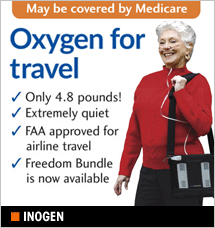
 Seniors joke about hoarding. We are a society that loves our stuff. We watch “American Pickers” and hit auctions on weekends. Our parents and grandparents left us antiques our children despise. We’ve saved silverware for two decades that our adult children don’t want. They prefer Ikea. Yet, our attics are full of vintage goodies, and we keep on collecting and spending.
Seniors joke about hoarding. We are a society that loves our stuff. We watch “American Pickers” and hit auctions on weekends. Our parents and grandparents left us antiques our children despise. We’ve saved silverware for two decades that our adult children don’t want. They prefer Ikea. Yet, our attics are full of vintage goodies, and we keep on collecting and spending.
When do we cross the line from collectors to hoarders?
Collectors have a sense of pride about their items. Hoarders may be embarrassed. Collectors display items. Hoarders hide items.
The Anxiety and Depression Association of America (ADAA) notes these warning signs: inability to throw things away, severe anxiety when attempting to get rid of possessions, trouble organizing possessions, and indecision about storage. The ADAA also reports individuals may be suspicious of others touching their items, and experience family isolation, financial difficulties, and health hazards.
A study in the Journal of Geriatric Care Management noted this is a huge issue among the senior population, with more individuals than ever before living longer and living alone. Long-term social isolation and a genetic predisposition to hoarding may be at the root of this unusual disorder.
The article stated that apart from the obvious health hazards of living in a less-than-desirable environment, seniors in a hoarding environment may be at risk for increased falls, an exacerbation of chronic conditions, and further increased social isolation. Shame may prevent hoarders from asking anyone inside, and without help, the problem gets worse.
It’s a question and a topic of conversation among my boomer friends. Many people my age are downsizing, letting go of the big house for the condo or the mobile home or an apartment. Our houses burst with great-grandparents’, grandparents’, parents’, and children’s possessions.
Even if we are emotionally healthy, most of us are in love with our stuff. It’s all about transitioning, and it is stressful.
Don’t think it's stressful? Take a valued possession – perhaps it’s your mother’s organ she played church music on beautifully – and try to sell it. First, since the advent of keyboards, pianos and organs have dived in value. Second, and this is hard to swallow. Valued doesn’t mean valuable. People don’t necessary want your old stuff.
Sometimes, it’s just easier to keep things than ditch them.
A new industry grew out of the problems of the elderly who need to downsize or transition. Senior move managers, according to the Journal of Geriatric Care Management, assists older adults with all aspects of relocating or modifying homes. The group is represented by the National Association of Senior Moves Managers. The group follows a strict code of ethics, and focuses on advocacy, privacy, and boosting autonomy and dignity.
If you have a friend or relative you suspect is a hoarder, how can you help?
- Get a thorough physical exam from a reputable medical provider. Your friend may be experiencing depression, and may need counseling or medication.
- Don’t be judgmental. Your friend may truly need and want help but is too ashamed to admit it. Your even-keel and gentle approach means everything. If you aren’t the right person, enlist someone who can work with the individual.
- Immediately remove anything that can be a fire hazard or a safety issue. After your friend has agreed she needs help, time to enlist a crew to clean up the mess. The organization A Place for Mom suggests:
- Setting a date in advance with the person whose space you’ll be invading.
- Work one room at a time. The crew will work better-focused area by area. Your progress is also more easily noticeable, says A Place for Mom.
- Put someone in charge to assign tasks.
- Have a place in each room for keepsakes and valuables.
The organization also suggests that when all rooms are finished, hire a professional to haul away the trash (or get a dumpster in advance and have it hauled away.) Then, hire a professional cleaning service.
Hopefully, your friend has seen a physician and is in treatment to avoid the situation repeating.
Most of us are not going to be card-carrying hoarders. We can, however, do our children a favor, and stop taking tangible, dust-catching gifts at a certain point. My family knows if “I can’t eat, smell, or spend it, don’t give it to me.” My son lives in a small apartment in an East Coast city. I doubt if grandmother’s library table and Victrola are moving there anytime soon.
Find my books and columns at www.amyabbottwrites.com.




























































